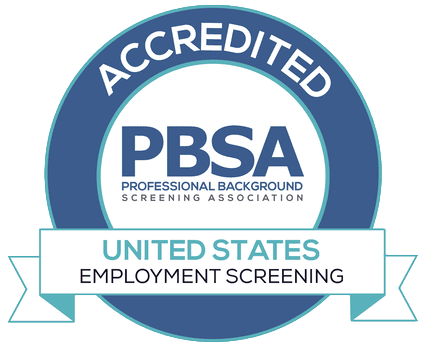
Background Checks for Nonprofits: A Complete Guide
Protect Your Mission and Your Workplace
Your mission is at the heart of your organization. Accomplishing that mission means securing the staff and volunteers to make it happen. Across the globe, non-profits recognize the need to be more diligent in their hiring and volunteer programs. One incident of fraud or abuse could be enough to put your reputation and your future at risk. ProVerify can help. Our solutions are designed with non-profit organizations and agencies in mind.
- Our fast, efficient screening solutions help you create a safe workplace.
- ProVerify offers a full suite of solutions for background screening and drug testing.
- Our solutions can aid you in operating an efficient, organization-wide screening program.
We know not all nonprofits and service organizations are alike—in mission or structure—so a “one size fits all” volunteer background check won’t work.
ProVerify helps nonprofit organizations gain confidence in the volunteers working with those they serve by delivering thorough, reliable background checks. By enabling volunteers to order, manage, and share their background checks via a secure online platform, a community of vetted volunteers is created, which helps nonprofit organizations save time and money.
Our extensive expertise in screening and compliance best practices helps clients recruit the best volunteers to maintain a safe environment and positive reputation.
ProVerify’s volunteer background screening platform tailored specifically for the volunteer service sector and the first online community to mobilize repeat, vetted volunteers.
Other Benefits include:
What is recommended?
Criminal background check for volunteers are typically meant to verify whether or not a volunteer is being truthful about their criminal record. Criminal record searches and reference checks are the most common background checks, though we highly recommend combining these common checks with other searches.
Background checks for nonprofits must be conducted in compliance with relevant local, state, and federal laws. Finding the right employees and volunteers for a nonprofit can be difficult and we can help!
Here at ProVerify, we conduct background checks for nonprofit volunteers, board members, and an array of managerial positions across the country. We know how to complete compliant background checks for nonprofits.
Why Do Nonprofit Organizations Run Background Checks?
Many nonprofits rely on a combination of employees and volunteers to meet their organization’s needs.
With many people serving your organization and its charitable goals, you must conduct thorough background checks on each of your prospective employees and volunteers.
There are several reasons why nonprofit organizations run background checks as detailed below.
What Shows up on a Nonprofit Background Check?
What might appear on a nonprofit background check will vary, depending on the position sought by the candidate or volunteer.
Nonprofit organizations might request different things on background checks for nonprofit board members vs. volunteers, for example.
Some of the most common types of information that nonprofits request include criminal history information, sex offender search information, past employment verification, and education history verification.
How to Run a Nonprofit Background Check for Employment or Volunteer Positions
- Nonprofit organizations should complete background checks for prospective employees and volunteers. However, performing these types of checks correctly is crucial.While some sites advertise free background checks for nonprofits, the information that they provide may be out-of-date, incomplete, and riddled with inaccuracies. Instead, nonprofits should work with reputable, experienced providers like ProVerify to ensure that they use best practices for volunteer background checks.
- Informal checks of candidates by performing Google and social media searches have become increasingly popular. However, you should avoid using these types of searches to make hiring decisions because of the risks involved.These types of searches can open your organization up to breaches of privacy or discrimination claims. Using social media search information for hiring decisions is also illegal in some states. It is best to avoid these types of searches and instead rely on a reliable background check provider like ProVerify.
- Some nonprofit organizations check records through their states’ criminal record repositories.
This type of information may not be complete and will not include all the information that might be needed. Criminal history information from a state might not reflect convictions and arrests that happened in other states and jurisdictions. It also will not include information about a candidate’s educational or employment history.
When you work with ProVerify, you benefit from a broad array of affordable options. You can choose the types of information that you need instead of having to pay for extraneous information.
How Far Back do Nonprofit Background Checks Go?
Restrictions under the FCRA restrict how far back some types of information on a background check can go.
Some other types of information, including an applicant’s employment history or educational records, do not have to follow this time limitation.
For those types of details, a background check can include educational and employment history during a candidate’s entire life.
What are the Legal Regulations Around Nonprofit Background Checks?
- Criminal Record Investigations
- Nationwide Background Investigations
- Substance Abuse Screening
- Social Security Trace
- Motor Vehicle Records Examination
- Education and Credential Verification
- Employment History Verification
- Current Employer Verification
- Credit History Examination
- professional Reference Checks
What You Need to Consider During Background Checks for Nonprofit Volunteers
At many nonprofits, volunteers play critical roles, from staffing special events and keeping programs running to serving as directors on boards. They are often the most effective community ambassadors, but, increasingly, nonprofits must consider the risks associated with failing to vet potential volunteers, particularly volunteers who work with children or vulnerable adults.
When appropriate background check processes are not in place, great harm can happen to those whom nonprofits are entrusted to protect. Substantial legal, financial and reputational damage can also arise from failure to conduct appropriate background checks. It is essential for every nonprofit to have volunteer background check policies and procedures; and in doing so, they should consider the following:
